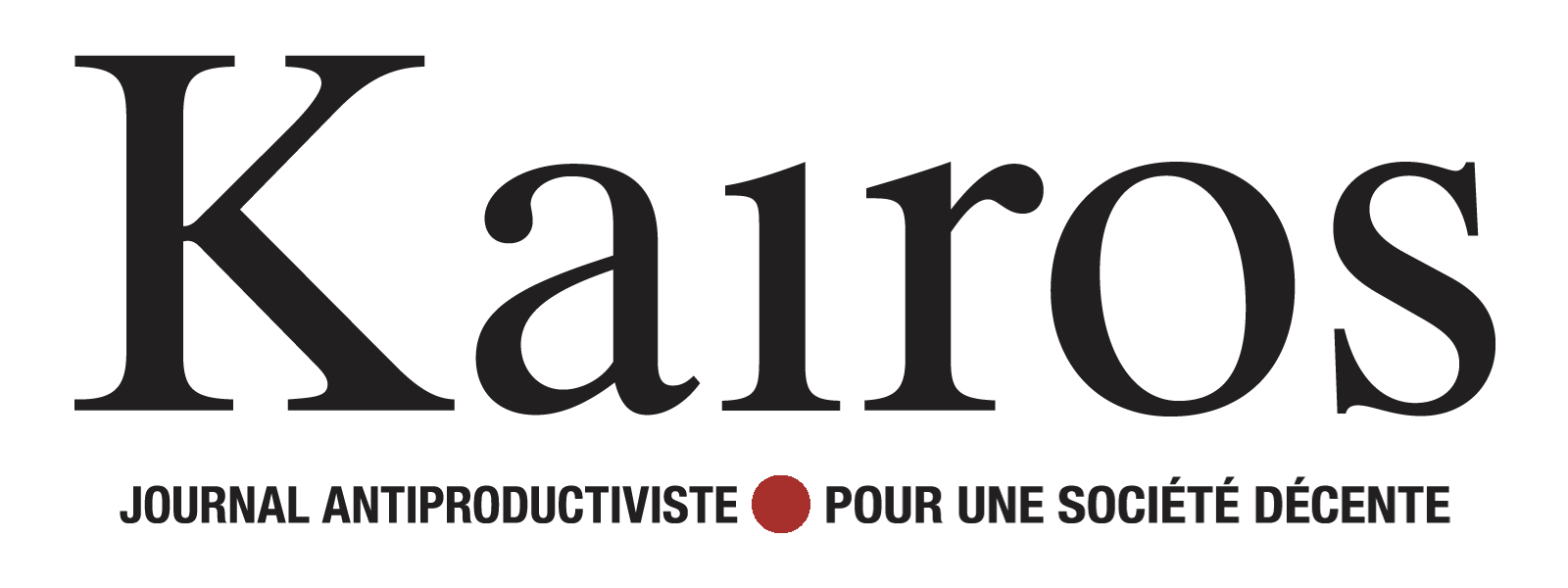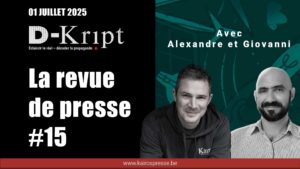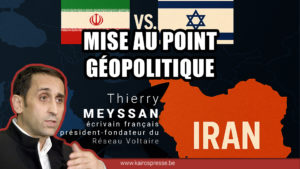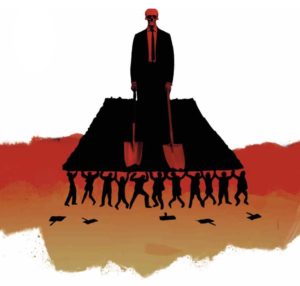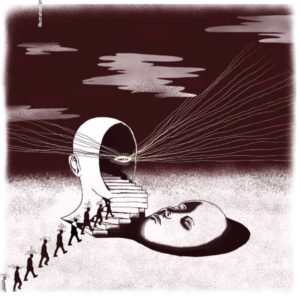Après une vaccination « forcée » de centaines de millions de personnes dans le monde, The Lancet, s’appuyant sur le fait avéré que les médecins, et ceci de façon globale (et pas seulement les « extrémistes ») jouèrent un rôle principal dans les crimes nazis, appelle en regard de ce passé la profession à un « examen de conscience ». Plus facile en effet de juger l’histoire, alors que les crimes actuels de l’injection continuent et que « l’idiot » pointe la collaboration passée plutôt que de se pencher sur celle en cours*…
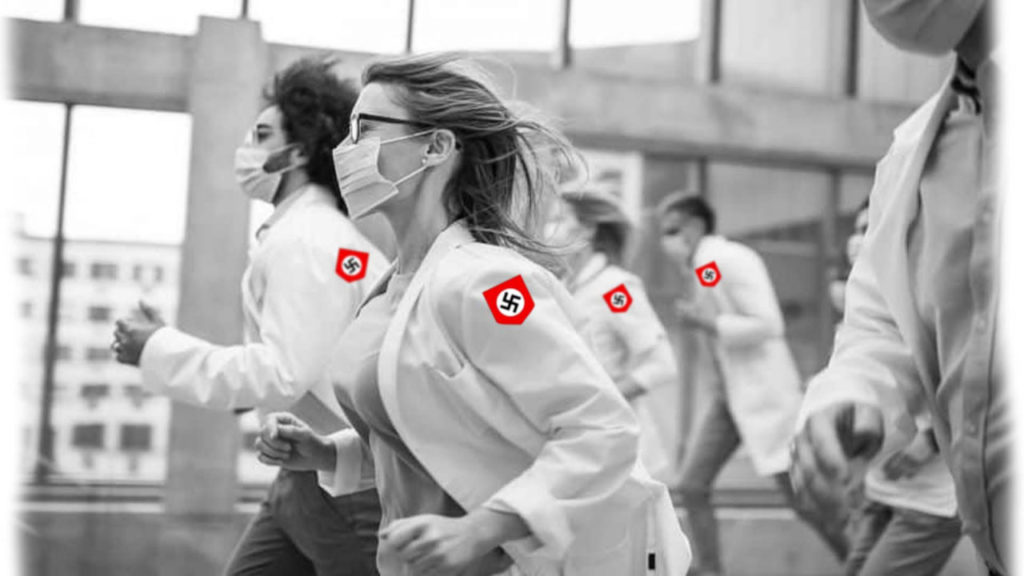
« La revue scientifique «The Lancet» appelle la profession à un examen de conscience et recommande que les faits historiques soient intégrés aux cursus de formation des professionnels de santé.
«Les crimes n’ont pas été commis uniquement par des médecins extrémistes» ou «sous la contrainte»
Le corps médical a joué un «rôle central» dans les crimes des nazis, selon un rapport présenté jeudi 9 novembre, qui appelle les médecins d’aujourd’hui à apprendre de ce passé pour s’opposer si nécessaire à des directives. «Les crimes n’ont pas été commis uniquement par des médecins extrémistes» ou «sous la contrainte», selon les résultats de cette étude publiée dans la revue scientifique britannique «The Lancet», qui balaie «les idées fausses circulant depuis longtemps» pour minimiser la responsabilité de la profession.
En 1945, de 50 à 65% des médecins allemands non juifs avaient ainsi rejoint le parti nazi. Une proportion «bien plus élevée que dans toute autre profession universitaire», selon ce document de quelque 80 pages se basant sur des sources universitaires, décrit comme «le plus complet» réalisé à ce jour «sur les atrocités commises». Au total, les programmes eugénistes, d’euthanasie et les «expériences humaines brutales» mis en œuvre dans un cadre médical ont fait «au moins 230.000 morts», parmi les handicapés, les patients juifs et les déportés, dont 7.000 à 10.000 enfants. Environ 300.000 stérilisations forcées ont été pratiquées.
En 1945, de 50 à 65% des médecins allemands non juifs avaient ainsi rejoint le parti nazi. Une proportion «bien plus élevée que dans toute autre profession universitaire»
Une renommée durable
«Contrairement aux idées reçues», «la médecine dans l’Allemagne nazie n’était pas une pseudo-science» et la «recherche nazie» est parfois «devenue partie intégrante du canon de la connaissance médicale», note le rapport. Par exemple, «la compréhension actuelle des effets du tabac et de l’alcool sur le corps a été alimentée par des recherches menées à l’époque nazie».
Certains criminels ont acquis une renommée durable après-guerre sans jamais révéler le contexte de leurs recherches, comme le recteur de l’université de Vienne Eduard Pernkopf. Son atlas anatomique de référence, paru dans de nombreux pays et utilisé sans controverse jusque dans les années 1990, avait été réalisé à partir des cadavres de personnes assassinées. Une fondatrice de la pédopsychiatrie, Elisabeth Hecker, a aussi été célébrée durant des décennies, l’Allemagne lui attribuant l’Ordre du Mérite en 1979, alors qu’elle a envoyé de nombreux mineurs, placés sous son autorité, à la mort.
Devoir de mémoire
Par ailleurs, «les méthodes développées» entre 1939 et 1941 pour tuer des patients par le gaz ont ensuite été réutilisées à très grande échelle «dans les camps d’extermination en Pologne», rappelle l’étude. Les auteurs recommandent que ces faits historiques soient intégrés aux cursus de formation des professionnels de santé, car il est «souvent surprenant de constater à quel point leurs connaissances» sont «limitées aujourd’hui, hormis peut-être une vague notion des expériences de Josef Mengele à Auschwitz».
Mais ils vont aussi plus loin, en affirmant que ce devoir de mémoire doit permettre aux médecins d’apprendre à s’opposer à des directives posant des dilemmes éthiques. Le rapport cite les soignants encadrant les interrogatoires de terroristes, ceux pratiquant le triage dans les hôpitaux lors d’afflux massifs de patients ou encadrant la fin de vie. Cette recherche a été menée dans le cadre d’une commission Lancet qui réunissait pour la première fois une vingtaine d’experts internationaux afin d’aborder l’histoire de la médecine ».
* « Une étude décrit le «rôle central» des médecins dans les crimes nazis », article du Figaro: https://www.lefigaro.fr/sciences/une-etude-decrit-le-role-central-des-medecins-dans-les-crimes-nazis-20231109. Le chapeau est de la rédaction de Kairos.
